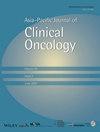Current practices and challenges in genetic testing and counseling for women with breast and ovarian cancer in Asia
Abstract
Aim
This study assesses current practices and challenges in genetic testing and counseling (GT and C) for breast cancer gene (BRCA)1/2 mutations in Asia, considering the increased risk of ovarian cancer (OC) and breast cancer (BC) in women carrying these mutations.
Methods
Insights were gathered through a questionnaire from breast surgeons, gynecologists, oncologists, and genetic clinicians in 10 Asian countries: Thailand, Hong Kong, South Korea, India, Vietnam, Malaysia, the Philippines, Taiwan, Singapore, and Indonesia. The questionnaire covered their knowledge, attitudes, and practices in GT and C for BRCA1/2 mutations, along with information on perceived gaps and unmet needs in the region.
Results
A total of 61 specialists participated in the survey. GT and C for BRCA1/2 mutations were less frequently offered in Asia compared to Western countries. Among the guidelines used, the National Comprehensive Cancer Network (NCCN) guidelines alone or in combination with other guidelines (American Society of Clinical Oncology [ASCO], National Institute for Health and Clinical Excellence [NICE], and European Society for Medical Oncology [ESMO]) were preferred for both BC and OC. Limited access to genetic counselors posed a significant challenge, resulting in delayed or no GT. Pretest genetic counseling was provided by the respondents themselves. Germline testing was preferred for BC, whereas both germline and somatic testing were preferred for OC, with the most preferred option being a multipanel germline test.
Conclusion
Disparities exist in GT and C practices between Asian and Western countries. To address this, steps, such as patient and doctor education, increased accessibility and affordability of GT and C services, and improved infrastructure for identifying gene mutations, should be taken.


 求助内容:
求助内容: 应助结果提醒方式:
应助结果提醒方式:


